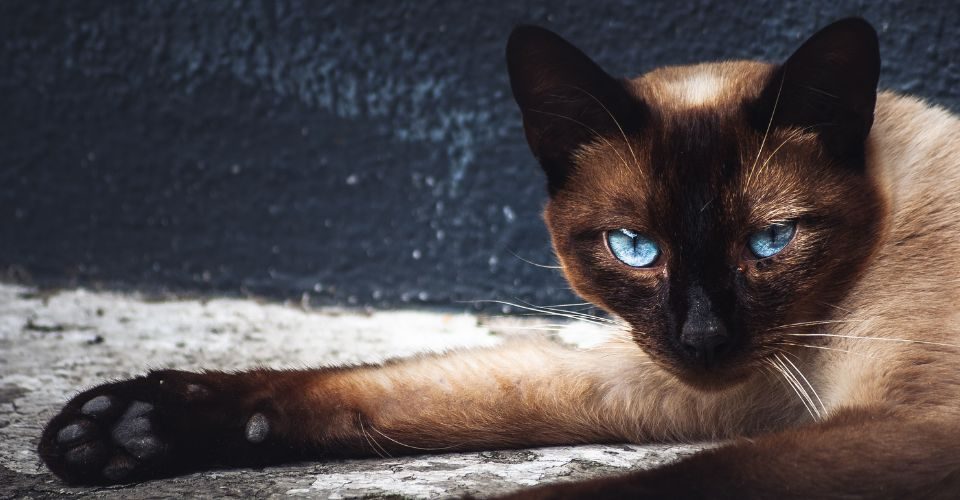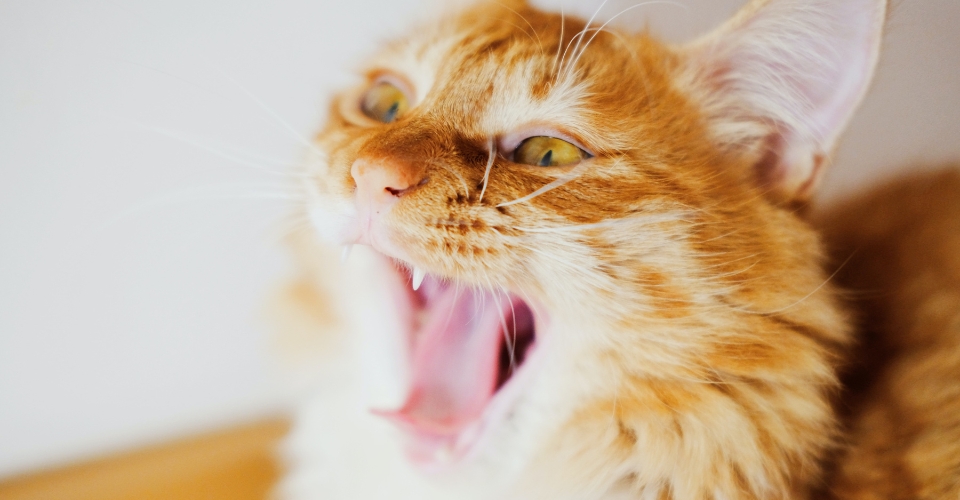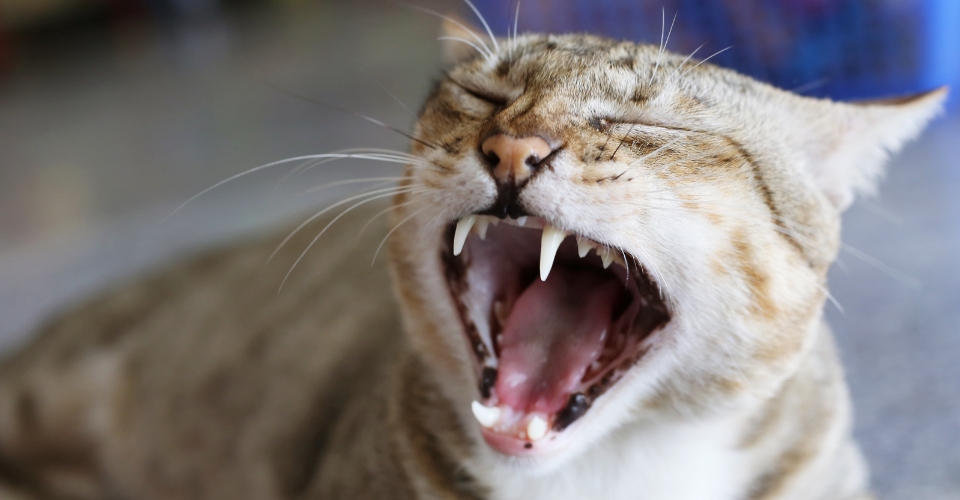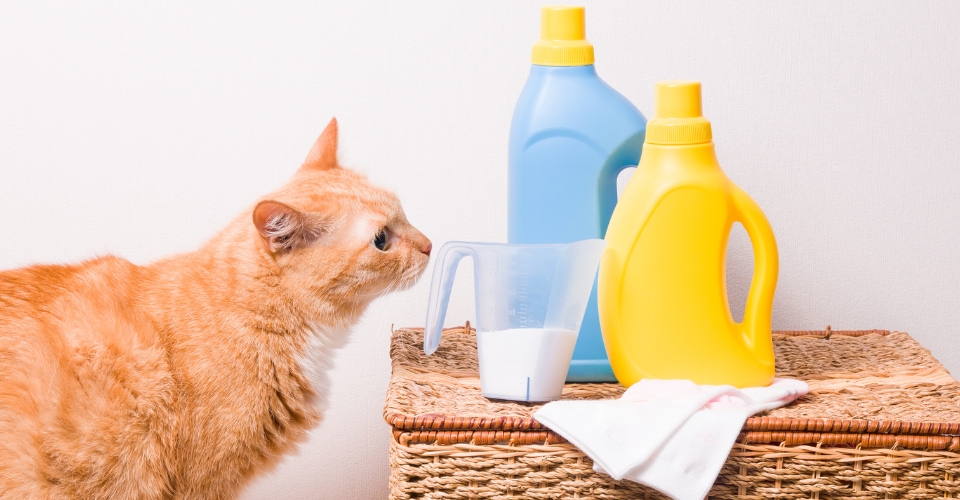Siamese cats break some real kitten stereotypes. Contrary to the popular belief that all cats are mellow, sweet, and affectionate, Siamese is an exception. Although you cannot label them as hostile or violent, they are sometimes more prone to show aggression.
But they have their reasons for this behavior. So, are Siamese cats aggressive?
Yes, Siamese cats have a reputation for being aggressive in certain situations and around some people. The beautiful Siamese cats are adored by many because of their social and loving personality. They love deeply and make a strong emotional bond with their favorite humans. But this affection easily turns into attention-seeking behavior. If Siamese cats are not given the attention they need, they may become aggressive.
To know more about Siamese cats and the aggressive streak in their personality, let’s take a closer look at the personality of Siamese cats. You can learn a lot more about this behavior and how you can tame your cat.
But before we go there, note that Siamese cats come in various coat patterns and colors. The most famous of their patterns are Chocolate Point Siamese, Lynx Point Siamese, Flame Point Siamese, Blue Point Siamese, and Seal Point Siamese. While the patterns may be different, their nature stays the same, as different patterns do not signify different breeds.
Why Are Siamese Cats Aggressive? The Behavior Explained
As mentioned above, Siamese cats are very affectionate towards their owners. But they also have a reputation for being aggressive. So, we will try to find out why siamese cats are aggressive.
We already know that Siamese cats bond deeply with their favorite person and this strong bond makes the cat possessive toward the human. Now the cat starts becoming overprotective and clingy towards her owner and wants undivided attention. If, for some reason, the owners are not able to reciprocate their cat’s love or don’t give them their full attention, the cat can become aggressive and mean.
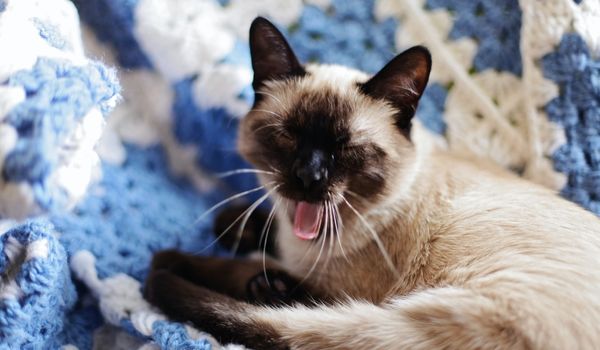
There are some other reasons as well that can make a Siamese aggressive which are discussed below.
Jealousy
Siamese cats also have a streak of jealousy in their personalities and would not allow another pet or even a human to have a claim over their favorite human. As they mostly bond with one person, they may not allow other members of the family or new people to become too close to their favorite human.
Dislike Being Held or Touched
Another reason a Siamese may become aggressive or agitated is that the cat may not like being held or touched. Some cats may even feel pain when you pet them. This is why they may squeak upon being picked up by people they do not recognize.
Being Scared or Stressed
It is also common for cats to show signs of aggression when they are scared or under some stress. They may show their aggression by hissing, biting, or scratching anyone who comes in close contact with them. If they vent their anger by scratching furniture, here are a few ways you can manage to keep them away from the furniture.
When Seeking Attention
It is also quite common for Siamese cats to become aggressive when they do not get the attention they crave. A lack of attention from their favorite human can make them resort to showing anger and frustration.
Over-Excitement
Siamese cats are energetic and playful. You might find them always in the mood for games and mischiefs. Sometimes, they may bite you out of over-excitement, which might be perceived as aggression.
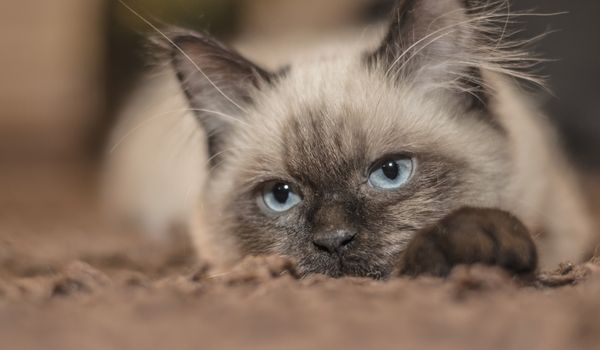
What Can You Do to Curb This Behavior? 5 Tips and Tricks
When it comes to owning a Siamese, aggression or possessiveness is a part of the package. You will have to deal with their proprietorial personality. As these feelings of jealousy and possessiveness are innately present in Siamese, these cannot be completely eliminated, but you can surely bring a positive change in their personalities with some preventive measures.
Below, we have suggested some tips that can help you bring out the best traits of your Siamese fellow.
Pick Out the Cause
First things first, to come up with a solution to any problem, it is important to find the root cause. If you have noticed that your Siamese cat is showing signs of aggression, is agitated, or is jealous, try to single out what is causing this behavior. Many a time, there is a potential reason behind an animal showing aggression.
Some common causes can be a disease, a hidden injury that is paining your cat, or the presence of other pets and people. If the aggression is too much and you cannot pinpoint a cause, it is better to consult a vet or cat behaviorist.
Provide Access to Privacy and Comfort

Most cat breeds like to hide in quiet places like ceilings and attics because they like privacy and want to spend some time of the day alone. So, if your Siamese seems agitated or uncomfortable, she might need some privacy and comfort.
Socialize Them from A Young Age
By socializing your cats from a younger age, your feline fellow will become more welcoming and warm towards other cats and even new members of the family. But remember not to force them to socialize. Instead, it would help if you let them socialize at their own pace and whenever they are ready. Give them time and space so they can socialize as they feel comfortable.
Spay or Neuter Them
One reason cats seem frustrated or aggressive is when they are going through their heat cycle. This can simply e tackled by spaying or neutering—it can make a lot of difference and calm them. For female cats, breeding can also prove helpful in calming them. But if you don’t want your cat to reproduce, it is better to spay her.
Besides addressing behavioral issues, spaying/neutering is also better for cats’ overall health.
Engage them in Physical Activity and Playtime
You can also help your cat feel less agitated by letting her play and tire herself out. This ensures your cat is not bored and spends her day engaged in healthy activities. By working out, she will also be able to release her pent-up energy, thus becoming less edgy.
Related Questions
Do Siamese cats bite or scratch when they are aggressive?
A Siamese cat may bite or scratch you when she is angry or feeling threatened by something or someone. Other signs of aggression include tail twitching, restlessness, and their ears flicking back and forth.
|
|
Do Siamese cats like to be held?
Yes, Siamese cats like to cuddle, sleep on their owner’s lap, and be petted. They also love heights, so they would enjoy climbing on your shoulder.
Are Siamese cats innately aggressive?
As we know, Siamese cats bond so well with their human owners that they become possessive of them. This sometimes results in developing a feeling of jealousy in them, and they become aggressive toward other pets or family members who try to take away the attention of their favorite human. So, their aggression has more to do with their territorial nature.
To conclude, are Siamese cats aggressive? Yes, they are. But you can manage this aggression by giving your feline pal your undivided attention and love. You should also play interactive games with her to match her energy level. Once she releases her pent-up energy, she will be more calm and happy.

